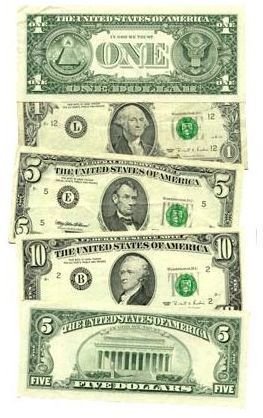Financial Matters: Are All Money Market Accounts Fully Liquid
Low Risk Investment Options
Money market funds are specifically funds that are purchased through a mutual fund as a fixed investment. They are governed by the same rules that other securities are governed by; by the rules set out by the Securities and Exchange Commission. These funds are not guaranteed by the FDIC and are subject to the same risks that other investments are prone to, including losing their value.
Consumers are often confused between money market accounts and money market deposit accounts. These are not the same instruments. While a money market account is a security account (typically purchased from a mutual fund company) money market deposit accounts are typically purchased through a bank and are insured by the FDIC. Common money market deposit accounts include certificates of deposit (CDs). Interest rates for money market accounts are based on the yield of the underlying securities, making them subject to regular change. Bank money market deposit accounts are slightly different in that the interest rate is fixed and they are subject to FDIC rules on insurance. This allows a risk-free investment with a guranteed rate of return. Money market funds carry no such guarantee.
Understanding Liquidity Restrictions

The other sigificant difference between money market funds and money market deposit accounts is the liquidity factor. This confusion often leads to questioning whether all money market accounts are fully liquid. Money market accounts are fully liquid, and according to the SEC the funds must be made available not later than 7 days after a liquidation request is made. Depending on the individual mutual fund company, the consumer may have checks available to them that allow them to use their money market account as a checking account. It is also important to note that most money market funds are set up so that all dividends are automatically reinvested into the account unless the shareholder requests they be mailed.
Another factor that must be considered is the funds that are deposited to the money market account. Deposits to mutual fund money market accounts may be done by mail or by wire. This may have an impact on the availability of funds. The type of funds deposited may also have an impact on the availability of funds. For example, If a shareholder of a money market mutual fund mailed in a certified check that was payable to them, the probability (depending on the mutual fund company’s policies) is high that those funds would be credited to the account on the same day received and be available on the following business day. However, if a check was payable to their child and mailed in, this would be considered a “second party check” and likely would not be available for several days.
Because money market funds are not FDIC insured, it is critical that those who are considering this type of investment carefully read the investment documents that accompany them. These documents should describe wherer that money market account is fully liquid. Class A money market accounts generally have no sales charge attached to them while Class B money market accounts may have a sales charge. Investors need to understand how money market accounts work before placing funds into these accounts.
References
-
Image credits
Broken Piggy Bank: istockphoto.com/Captainflash (purchased)
Money - Wikimedia US Government image Public Domain
-
Author’s own experience
-
Securities and Exchange Commission - Money Market Accounts
